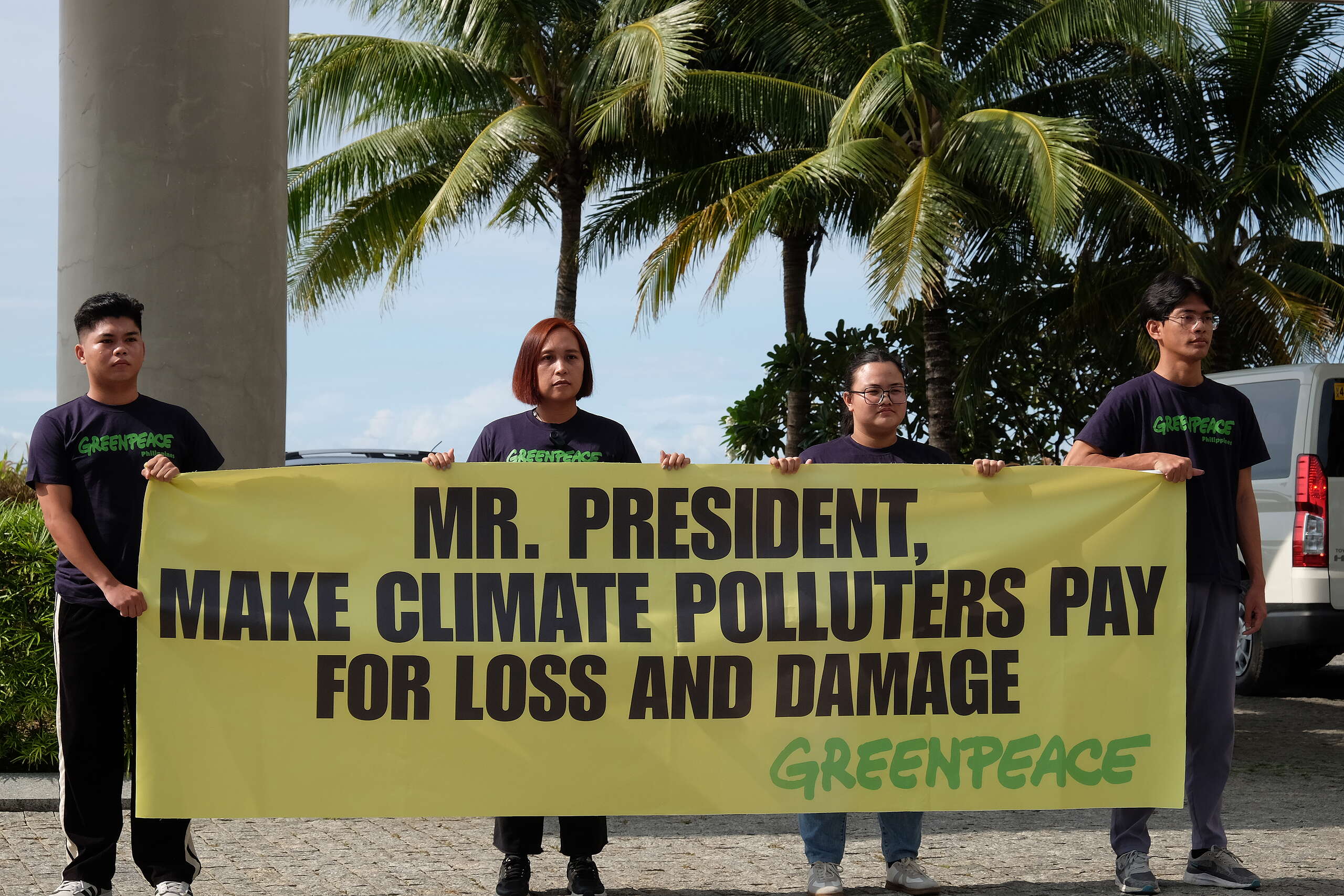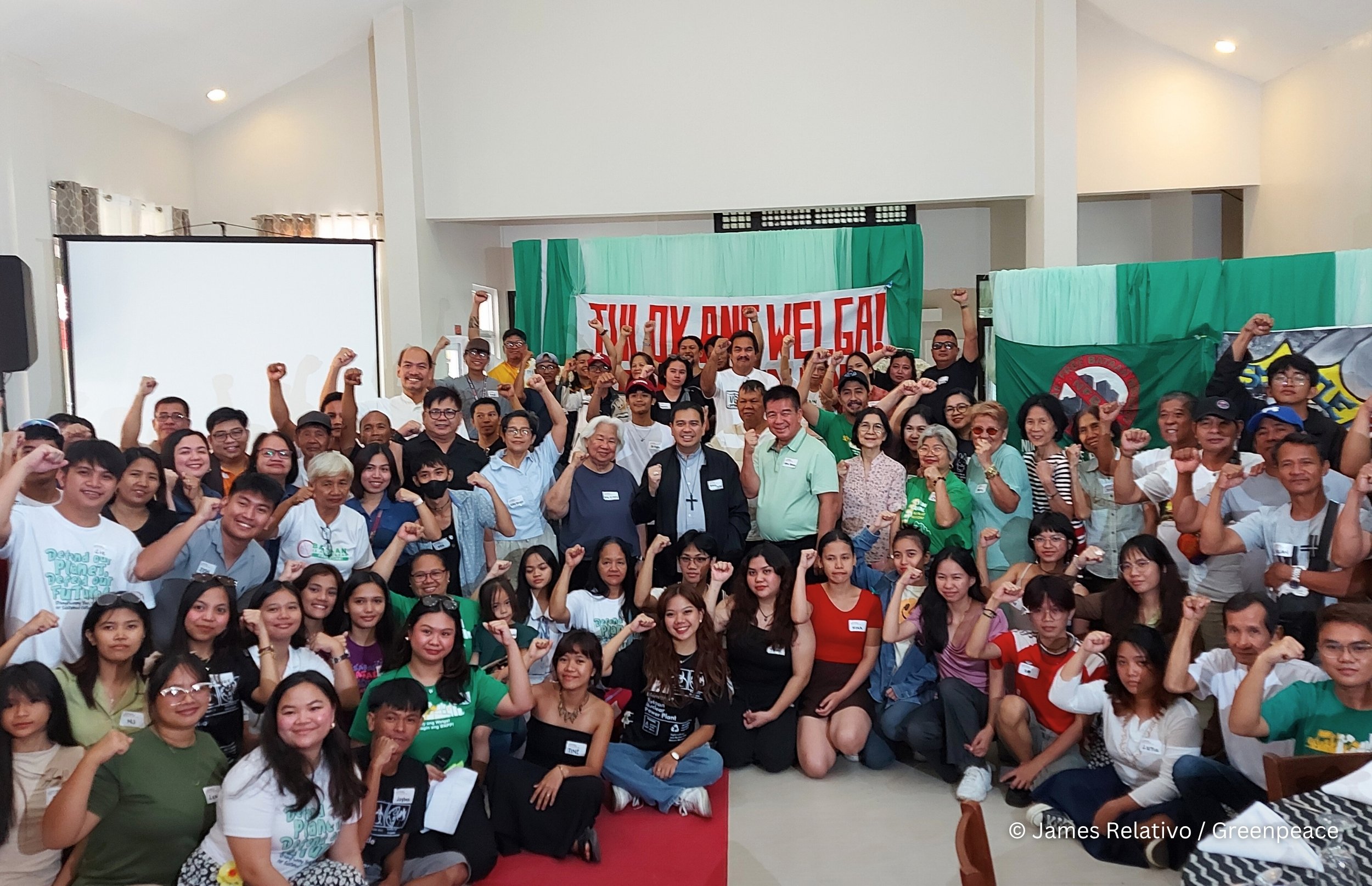Manila, Philippines—Environmental group Greenpeace today expressed alarm at the discovery of fifty container vans from Canada, supposedly carrying plastic scraps, but found to contain a mixture of different household waste that include adult diapers, and plastic containers with liquids.
Abigail Aguilar, Toxics Campaigner for Greenpeace Philippines said:
“This is a clear example of the disgraceful hazardous waste trade that continues to happen right under our noses where industries from developed countries unashamedly ship their toxic waste to poorer, developing countries like the Philippines.
“This hazardous waste shipment violates the spirit of the Basel Convention on the Transboundary Movement of Hazardous Wastes. This international treaty, to which the Philippines is signatory, is designed to eliminate the movements of hazardous waste between nations, and specifically intends to protect developing nations from becoming the dumping ground of industrialized countries.
“Unfortunately, the Philippines has not yet ratified the Basel Ban Amendment, which addresses a loophole in the Basel Convention because the amendment additionally prevents hazardous waste shipments labeled for ‘recycling.’
“Greenpeace demands that the Philippine Senate ratify the Basel Ban Amendment[i] immediately in order to:
- Ban all shipments of hazardous waste from developed to developing countries, even for recycling purposes.
- Promote clean production, stop toxic technologies and prevent governments and companies from circumventing the recycling loophole in the Basel Convention.
“Greenpeace supports the Bureau of Customs for refusing the entry of these questionable container vans from Canada and obliging the shipment firm Chronic Incorporated, and its Philippine consignee Chronic Plastics, to return the hazardous shipment back to its port of origin, at the shipper’s expense, as mandated by the Toxic Substances and Hazardous and Nuclear Wastes Control Act of 1990. Additionally we are urging the Philippine government to call on Canada to also ratify the Basel Amendment to ensure such incidents are not repeated.
“Greenpeace condemns all forms of toxic dumping by the world’s rich countries to developing countries through this “recycling loophole,” as was the case in 2003 where Greenpeace issued an investigative report[ii] on how 90% of all hazardous wastes found their way to developing countries.”
About Basel Ban Amendment:
In 1995, the Basel Convention on the Transboundary Movement of Hazardous Wastes was amended with the Basel Ban Amendment. The Amendment is meant to ensure that developing countries do not become convenient dumping grounds for waste intended for recycling—from obsolete ships containing toxic chemicals to old computers from developed countries.
Though hailed worldwide as a victory for environmental justice, the Basel Ban Amendment has not yet been ratified by governments of the Philippines and Canada.
For more information, please contact:
Abigail Aguilar, Toxics Campaigner, [email protected], 0923-6502070
Therese Salvador, Media Campaigner, [email protected], 0917-8228734
Notes:
[i] The Basel Ban Amendment prohibits the export of hazardous waste from developed countries to developing countries. The Basel Ban applies to export for any reason, including recycling.
[ii] Greenpeace International Report. 2003. Toxics Reloaded: Revisiting the Impacts of Lead Battery Waste Trade and Recycling in the Philippines. June 2003


![[Blog] WHEN THE TIDE BECOMES THE TEACHER](https://www.greenpeace.org/static/planet4-philippines-stateless/2025/06/95c8411e-9a04f785-4293-46a6-a6cf-425f0a384682.jpg)
